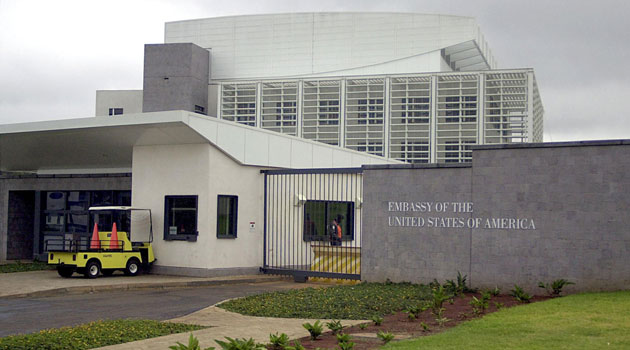Twelve Kenyan organizations working in public health and development have received Sh44 billion from the US Embassy in Nairobi, providing much-needed funding at a time when vital services faced the risk of closure due to a continued suspension of support from the US Agency for International Development (USAID).
The funds were disbursed even as the shutdown of USAID remains in effect.
The development comes as a relief to Kenyan institutions that rely heavily on American aid for their operations, particularly those involved in HIV, tuberculosis, and other public health interventions.
Ryan Shrum, Senior Advisor for Legislative and Congressional Affairs, disclosed the disbursements in a March 21, 2025, memo to the US Congress.
He noted that the funding was directed to various international partners, with 12 key Kenyan organizations among the recipients.
A substantial portion of the funds went to institutions central to Kenya’s health response.
The Program for Appropriate Technology in Health received Sh7.5 billion, the largest share.
LVCT Health was allocated Sh6 billion, followed by Deloitte with Sh5.2 billion, and Moi Teaching and Referral Hospital, which received Sh5.1 billion.
The Mission for Essential Drugs and Supplies (MEDS) got Sh3.8 billion to support the supply and management of critical medical commodities.
Amref Health Africa received Sh3.6 billion, while Moi University College of Health Sciences was allocated Sh3.2 billion to continue its work in research and medical training.
The Moi Teaching and Referral Hospital branches in Bungoma and Busia received Sh2.9 billion, while the Christian Health Association of Kenya was allocated Sh2.6 billion.
Technoserve got Sh2.1 billion, and the Centre for Health Solutions – Kenya (CHS) received Sh1.3 billion.
St John’s Community Centre in Pumwani was awarded Sh950 million for its role in community outreach and health promotion.
This financial assistance is a crucial support for Kenya’s overstretched public health system.
US support typically contributes Sh24.9 billion of the Sh80.5 billion needed annually to sustain Kenya’s national health programmes, particularly the HIV response.
The funding freeze began during efforts by the Trump administration to dismantle USAID.
In February, a federal judge blocked the initiative, ruling it likely unconstitutional.
Judge Theodore Chuang criticized the Department for Government Efficiency (DOGE), led by Elon Musk, for violating constitutional provisions.
The same month, another judge directed the US government to pay its development partners for previously completed work, stating that “the president lacks unbounded power in the realm of foreign affairs.”
However, the legal victories for aid recipients were short-lived.
On Friday, a three-judge panel from a federal appeals court allowed the aid cuts to go ahead.
Judge Marvin Quattlebaum ruled that the directives from Musk were lawful and had received approval from authorised government officials.
A report by Kenya’s Ministry of Health, titled Impact of the United States Government Stop Work Order, outlines how the aid freeze has affected programmes funded by PEPFAR, USAID, and the CDC.
According to the report, critical interventions have been disrupted, reversing progress made in fighting HIV and other diseases.
“This vital support flows through a network of specialised service providers that ensure lifesaving interventions reach vulnerable populations,” the report notes.
It adds that MEDS oversees the supply of commodities for HIV, TB, and malaria, while Imperial Managed Solutions handles family planning materials.
UNICEF and the World Food Programme (WFP) are responsible for distributing nutrition-related supplies.
In his memo, Shrum said USAID is currently overseeing 898 active programmes worldwide, valued at Sh9.98 trillion.
The agency has an unspent balance of Sh1.06 trillion, mostly earmarked for health and emergency food assistance.
Though the recent court decision allows for the continuation of the USAID shutdown, the Sh44 billion disbursed by the US Embassy has provided temporary relief for essential health services in Kenya, helping institutions stay afloat amid funding uncertainty.
